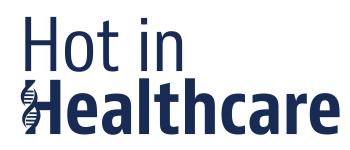In brief
On 25 October 2022 leading researchers and executives from some of the world’s pioneering drug and pharmaceutical companies came together at a Financial Times Live Webinar event to discuss “The Power of Clinical Trial Tokenisation”.
Tokenisation of healthcare data is likely to be one of the next great innovations for developing life-saving drugs and treatments through the method of privacy-preserving record linkage (PPRL). This allows pharmaceutical companies to “tokenise” and link previously scattered patient datasets to produce unique insights. We have set out the top five takeaways on tokenisation from the webinar below:
- How does it work? The digital token creates a pseudonymous version of a patient’s healthcare data to produce a holistic record that can be applied to other datasets, such as lab and trial data, throughout the course of a drug trial to uncover invaluable trends that are not otherwise identifiable.
- What problems does this solve? Traditionally, researchers have found it difficult to track patients that dropped out of studies. When coupled with issues such as patient recollection and written notes, this reduced the reliability of the datasets. Now, because of PPRL, researchers can collect routinely obtained healthcare data in real-time and link randomised control trial data and registries with real-world data.
- What is the promise of tokenisation? Tokenisation creates the ability to see the true effects of drug trials over the long term that might not have been otherwise possible. Wider populations can be integrated more easily into these datasets, creating sample diversity and increasing comparative accuracy. Some areas highlighted as greatly benefitting from PPRL are oncology, mental health, and digital therapeutics. Health regulators may also start to request PPRL information to build multi-layered datasets when conducting their own regulatory assessments. This could be particularly useful in gene testing where patients need to be followed for five or more years.
- What are the challenges? Key barriers are ensuring health data does not become compromised, and (where needed) obtaining patients’ consent — patients’ familiarity with the PPRL process is vital to this. Additionally, external stakeholders’ familiarity is important to obtain operational support by, for example, educating data collection sites. Tokenisation of healthcare data presents huge opportunities, but these hurdles will need to be overcome, and this is dependent on available resources. To realise maximum value at an enterprise level, technical, legal, and governance teams will need to collaborate to see the most benefit.
- The impact of data privacy: Increasingly complex and varying data privacy regimes in different jurisdictions make operationalising PPRL difficult from a practical and legal perspective. So far, PPRL has emerged as a US-centric focused method and more work is needed to harmonise the process, including standardisation of external providers that are able to tokenise the data. Nevertheless, tokenisation could be used as a method for risk-sharing through aggregation of healthcare data in the future.
Speakers included: Sidharth Jain, Head of Global Development Data Science at Janssen R&D; Jason Lott, Vice President of Global Integrated Evidence Generation, Specialty Medicine, Integrated Care, and Cell-Gene Therapy at Bayer Pharmaceuticals; Kathleen Mandziuk, Vice President of Real World Solutions and Tokenisation at ICON; Lucinda Orsini, Vice President of Value and Outcomes Research at COMPASS Pathways; Henry Wei, Head of Development Innovation at Regeneron; and, Sarah Neville, Global Health Editor at the Financial Times.
You can access a recording of the webinar in full at: Agenda | The Power of Clinical Trial Tokenisation
Copyright © 2022 Baker & McKenzie. All rights reserved. Ownership: This documentation and content (Content) is a proprietary resource owned exclusively by Baker McKenzie (meaning Baker & McKenzie International and its member firms). The Content is protected under international copyright conventions. Use of this Content does not of itself create a contractual relationship, nor any attorney/client relationship, between Baker McKenzie and any person. Non-reliance and exclusion: All Content is for informational purposes only and may not reflect the most current legal and regulatory developments. All summaries of the laws, regulations and practice are subject to change. The Content is not offered as legal or professional advice for any specific matter. It is not intended to be a substitute for reference to (and compliance with) the detailed provisions of applicable laws, rules, regulations or forms. Legal advice should always be sought before taking any action or refraining from taking any action based on any Content. Baker McKenzie and the editors and the contributing authors do not guarantee the accuracy of the Content and expressly disclaim any and all liability to any person in respect of the consequences of anything done or permitted to be done or omitted to be done wholly or partly in reliance upon the whole or any part of the Content. The Content may contain links to external websites and external websites may link to the Content. Baker McKenzie is not responsible for the content or operation of any such external sites and disclaims all liability, howsoever occurring, in respect of the content or operation of any such external websites. Attorney Advertising: This Content may qualify as “Attorney Advertising” requiring notice in some jurisdictions. To the extent that this Content may qualify as Attorney Advertising, PRIOR RESULTS DO NOT GUARANTEE A SIMILAR OUTCOME. Reproduction: Reproduction of reasonable portions of the Content is permitted provided that (i) such reproductions are made available free of charge and for non-commercial purposes, (ii) such reproductions are properly attributed to Baker McKenzie, (iii) the portion of the Content being reproduced is not altered or made available in a manner that modifies the Content or presents the Content being reproduced in a false light and (iv) notice is made to the disclaimers included on the Content. The permission to re-copy does not allow for incorporation of any substantial portion of the Content in any work or publication, whether in hard copy, electronic or any other form or for commercial purposes.






